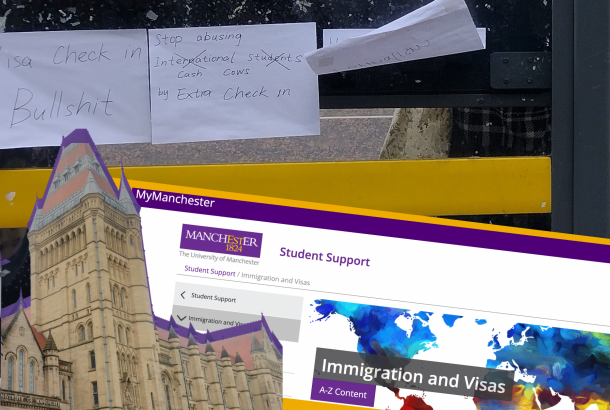Does UoM’s admissions process prioritise the privileged?
By Nial Perry

Private, or independent, schools are not so-called for their secrecy. They are ‘private’ because they belong to the private sector. They do not receive government funding and finance themselves by charging fees or raising cash through alumni donations.
According to the University of Manchester’s latest Access and Participation Plan, students from independent schools are more likely to be made an offer to study at UoM than their state school counterparts.
15.4% of UoM students come from private schools, according to data from the Higher Education Statistics Agency. This percentage exceeds the average across UK higher education of 10.2%, and greatly exceeds the proportion of UK children in private education – which is 6.5%.
UoM insists it is committed to “fair” practice and providing higher education “irrespective” of the type of school students hail from – but student leaders say there is still work to be done.
Critics say that a difference in funding between state and private schools leads to a disparity in the level of education they provide.
“You [can] see the difference,” one Manchester student, who chose to remain anonymous, told The Mancunion. The student, who has attended both private and state schools, says there is an “exclusive network” and a “wealth of opportunities” that characterise independent schools.
UK private schools have, on average, triple the revenue per student compared to state schools. They invest this in attracting top teachers, better technology and more school trips. These opportunities can lead to shimmering personal statements, which are meticulously penned by students with the help of teachers to flaunt their skills, and are key when universities decide to offer places.
Students fill their statements by declaring their love for their chosen subject – along with their related experiences, jobs, activities and projects. With more extracurricular activities available to them, private school students are better-equipped to prove their subject interest.
Private schools, offering a lower student-to-teacher ratio, can devote more time to offering personalised feedback on personal statements – helping iron out grammatical mistakes, remove irrelevant info and tidy up formatting – all of which boost an application and a students’ odds of getting an offer.
The other side of the admissions coin is predicted grades. The coronavirus pandemic has bought academic processes to a nationwide stand-still, the most pressing issue of which is the impact this may have on A-Level students achieving their University entry requirements.
On average, private school pupils achieve 2 grades higher in their A-Levels than state school pupils – but predicted grades are just as important in securing university offers.
The Sutton Trust, an educational charity, says this is a “flaw” in the system: “High attaining disadvantaged students are more likely to have their grades under-predicted.”
In other words, between two equally-intelligent candidates, the deciding factor for a University offer might just be their teacher’s confidence in their student.
What’s more, with traditional A-level exams cancelled across the country due to the lockdown, predicted grades now play an even larger part in calculating a students final grade. Teachers in England have been asked to predict final A-level grades based on students’ standard of work and mock-exams in the past year, these will then be moderated by the exam boards.
UoM has implemented schemes to negate the imbalance between private and state school student attainment. Admissions staff consider ‘contextual data’ alongside a student’s application. This might include whether they’ve been in care, their school’s average exam performance and the wealth of the student’s neighbourhood.
Students are then flagged when these three indicators deem their situation unfavourable, and according to UoM’s website, they are afforded extra ‘consideration’ if they later miss their grade offer.
But Sara Khan, Manchester SU’s Liberation and Access Officer, told The Mancunion there was still work to be done:
“UoM has to do more than access and outreach programmes – it has to address an unfair and unequal system by calling for the way grades and university admissions work to fundamentally change.”
“The University needs to look at using its prestige as an institution, its national reputation, to lobby for this structural change [and] to follow through with this example, [to reach] an end to the unfair predicted grade system.”
Helen Harper, the University of Manchester’s Recruitment and Admissions Manager said: “The University is dedicated to providing quality higher education to students of outstanding achievement from all education backgrounds irrespective of which type of school you went to.
“Our admissions framework supports our principles of fair and transparent admissions. We endeavour to have a fair admissions process and have implemented a number of strategies to make it fairer such as running the Manchester Access Programme and taking into consideration contextual data.
“We do this so that all applicants with the potential to be successful students have an equal opportunity through our selection process. We are also very transparent in who we make offers to. In summary, we do have a fair admissions policy.”







